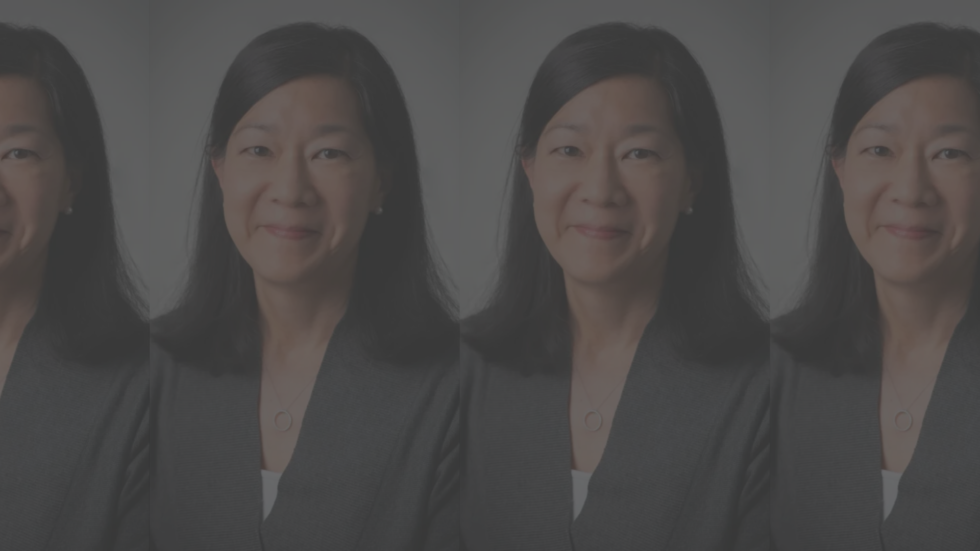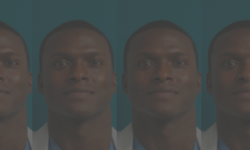
“The theme that you’ll hear from my experiences is definitely exploration, going down on one route and realizing it’s not for me, and then trying something else,” Professor of Emergency Medicine Dr. Ula Hwang said.
When Hwang graduated from New York University School of Medicine, she matched into an obstetrics and gynecology (OB-GYN) residency. But after observing how unhappy her attendings were in their careers, despite all the training she had acquired over the years, Hwang decided to leave OB-GYN to pursue a Masters of Public Health at Harvard University.
“It was a really hard decision to make, because it was scary,” Hwang said. “I’d done all this training, I had started and gone down this residency path, only to decide that it wasn’t the path I wanted to take. It was a leap of faith to switch.”
A long, circuitous path
Both of Hwang’s parents grew up with an engineering background, and even though she initially considered pursuing medicine with a biochemistry major, she developed an interest in engineering. She also enjoyed macroeconomics, but decided that economics wasn’t for her after taking a microeconomics course.
By the end of her sophomore year at Yale University, Hwang had circled back to biology. She worked in a number of basic science labs, including a hematology lab where she performed Western Blots and electrophoresis gels.
Hwang attended medical school at New York University School of Medicine, initially thinking that she would become a pediatrician. She worked in a lab that worked with human tissues and tissue culture cells, and also an endocrine lab that worked with yeast cells. But after finishing medical school, she decided to go into OB GYN.
“I always had an interest in exploring, so going in with the mindset that I’m keeping my mind open to other things, and trying other things and liking them,” Hwang added.
Even though she had decided on OB GYN, first-year residents were still required to rotate through other services. During her rotations, she was exposed to the field of emergency medicine.
“I loved it, [it] had a little bit of everything,” Hwang said. “It’s got a nice lens to the health care system, because everybody lands in the emergency room at some point when they’re at their worst.”
Whether due to an accident or a worsening medical condition such as diabetes or a heart attack, a patient will ultimately turn to the emergency department. Hwang said that it was a neat opportunity to see the medical system at its best, because emergency medicine doctors treat patients when they’re in their greatest need.
Upon making the difficult decision to leave her OB GYN residency, Hwang attended Harvard School of Public Health and received her Masters of Public Health.
Hwang described her year at Harvard as one of her “best years ever,” because she was given the opportunity to study whatever she wanted, including health accounting. She took classes about health policy, and received an extensive public health education.
“If there’s any advice that I could give to people if they want to go down the medical career, if they can afford to take a year off, just to explore and go get a master’s and really dive into something they’re interested in,” Hwang said. “Do it. It was one of the best things that I was ever able to do.”
After obtaining her Masters of Public Health, Hwang completed her emergency medicine residency at Mount Sinai Medical Center.
During her residency, she observed how the emergency department was continually overcrowded. Hwang recalls picking up a patient chart and seeing that the patient had been in the waiting room for 16 hours. She would go to the waiting room to call their name, and they would still be sitting there, waiting for their turn.
“That’s when I realized the emergency department is the healthcare safety net,” Hwang said. “But even in the safety net, we’re still falling short with our patients because it’s so crowded.”
Hwang decided to focus on older adults, because they are the most at-risk when they’re alone and the emergency department is overflowing. She added that the elderly are not able to advocate for themselves as well as a younger patient would for their treatment and health.
“Who’s going to suffer the harms of our healthcare system falling through?” Hwang said. “It’s the older patient. And that’s why I decided to really study and try to focus on the older patients, because I saw them as a vulnerable population.”
A focus in geriatrics
Hwang is also a Co-Principal Investigator for the Geriatric Emergency Department Collaborative (GEDC), a collaboration between hospitals across the country dedicated to improving the quality of care for older people in emergency departments.
Together with Associate Professor of Emergency Medicine at the University of North Carolina School of Medicine Kevin Biese, Hwang and the GEDC collect funding from various institutions, including Yale, the Johnny Hartford Foundation, and West Health Institute.
Those funds are geared towards supporting conferences that invite other hospitals and clinicians to learn about ways to improve healthcare outcomes. Hwang mentioned that it might include how to implement delirium protocols when taking care of older patients, or how to create a medication review process to ensure patients are not prescribed inappropriate medications.
During these conferences, Hwang added that they share the lessons learned of how these programs are implemented. Once it’s done at one hospital, she noted, healthcare providers and clinicians can explain what they’ve learned from their mistakes and assist other hospitals on how to do things better — for example, the best ways to communicate with discharged patients, or the most efficient way of printing out and distributing forms.
“It’s a learning collaborative in the sense that it’s not based at any one hospital – it’s all hospitals, for sharing with each other how they can do things better,” Hwang said.
Hwang also leads the Geriatric Emergency Care Applied Research (GEAR) Network, a network that aims to improve care for people living with dementia. It consists of a taskforce of doctors, nurses, geriatricians, emergency physicians and neuropsychologists, as well as people living with dementia.
During a two-day virtual conference, a key component of the GEAR network approach, the taskforce provided recommendations on the current knowledge base, discussed ways to identify current research gaps, and provided suggestions for future research and pilot grants.
According to Hwang, a significant strength of the GEAR Network approach is the inclusion of patients with dementia. The GEAR Network’s priority is to “include their experiences and perspectives” and “learn what matters to them about the emergency care they receive.”
“It was exhausting – two 4-hour sessions each day, so eight hours each day, and we had the full attention of the individuals who have dementia,” Hwang said. “It’s not easy, because they have cognitive impairment, but they continually participated and stayed engaged.”
At the end of the conference, Hwang stayed behind to ask the patients for feedback and ways for them to improve their approach. One of the patients had responded that it was the best conference they had ever been a part of, and every researcher should do what Hwang did by getting the perspectives of the patients and learn what matters to them.
“That brought tears to my eyes, to hear they valued it so much that they were fully dedicated,” Hwang said. “And to say that this was a great experience for them, and that they want every doctor and researcher to do what we did – I was really proud of that.”
Looking forward, Hwang said that it would be great to make geriatrics something that is exciting for people.
“Our population is aging, and I think the American society especially is very youth-focused,” Hwang said. “So it’s really easy for me to be attracted and excited about caring for children. But on the flip side, when you go into any hospital or any healthcare system, you’re going to see increasingly more older patients.”
Ultimately, the concept of geriatric emergency area is one of the areas Hwang has been able to make a difference in the American healthcare system by “getting it on the map” for people to think about.
Hwang added that she is lucky to have taken a long road to get to where she is today, but she enjoys her career and the projects she has led.
“Any advice that I would give to young, aspiring people who want to go into healthcare and medicine is to go into something that you really love,” Hwang said. “Don’t do it just because your parents told you or because of peer pressure, because your work is going to be the majority of your day. If you don’t like it, then it’s not going to be very inspiring.”





